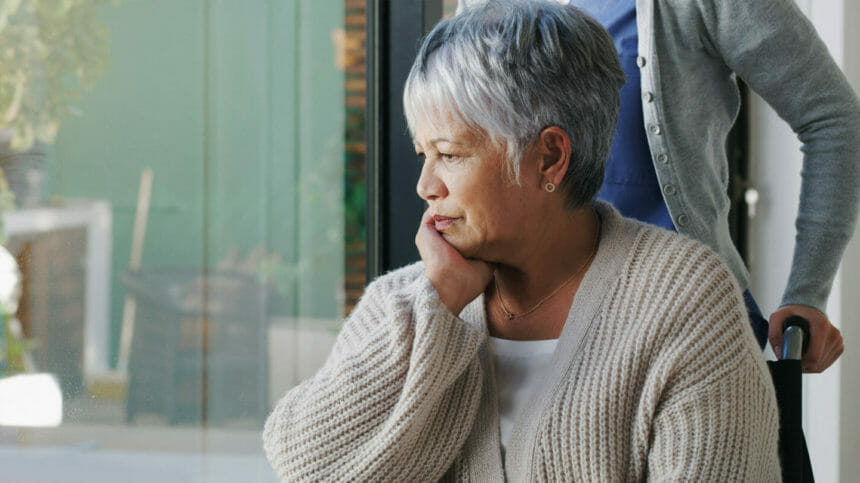
The highest risk for people living with dementia to hurt themselves is within the first 24 months after receiving the diagnosis, according to data presented at the Alzheimer’s Association International Conference in Amsterdam last week.
“The message to clinicians and, indeed, the outside world, is that it is really important, once a person gets a diagnosis of dementia, that psychosocial and mental health supports are kicking in straight away,” Simone Reppermund, PhD, one of the authors from the University of New South Wales in Sydney, said in a statement.
“Coping with the stress of a dementia diagnosis can be difficult, especially knowing that neither a cure nor an effective treatment have been found yet,” Reppermund told another media outlet.
The team looked at data from two groups of people admitted to the hospital from 2001 and 2015: 154,811 people had dementia, and 28,972 were admitted for self-harm injuries. Of them, 652 (just more than 2%) tried to hurt themselves, or self-harm, and were admitted again to the hospital.
Women made up the majority of people initially admitted for dementia (60%) and also in those first admitted for self-harm (53%). But in terms of who went on to self-harm more, of the 652 people, 60% were men.
The team noticed a few things about who was more likely to self-harm: People who generally were younger at the time of their dementia diagnosis and males were more apt to hurt themselves. And the harm happened most often within the first 24 months of their receiving a dementia diagnosis.
Other issues that frequently occurred in people with dementia who self-harmed were drug or alcohol use, depression, anxiety and a psychotic disorder.
“Families and friends watch their loved one lose parts of themselves — their memories, their speech, their ability to perform everyday tasks — and it takes a toll on all parties. If the strain and hurt becomes too much, a person with dementia may begin to self-harm, which is not only dangerous for the person, but devastating for a family wanting desperately to protect them,” Reppermund said.
The researchers also examined how many people who didn’t have dementia went on to develop it because of self-harm. They found that men previously admitted for self-harm went on to receive a dementia diagnosis.



